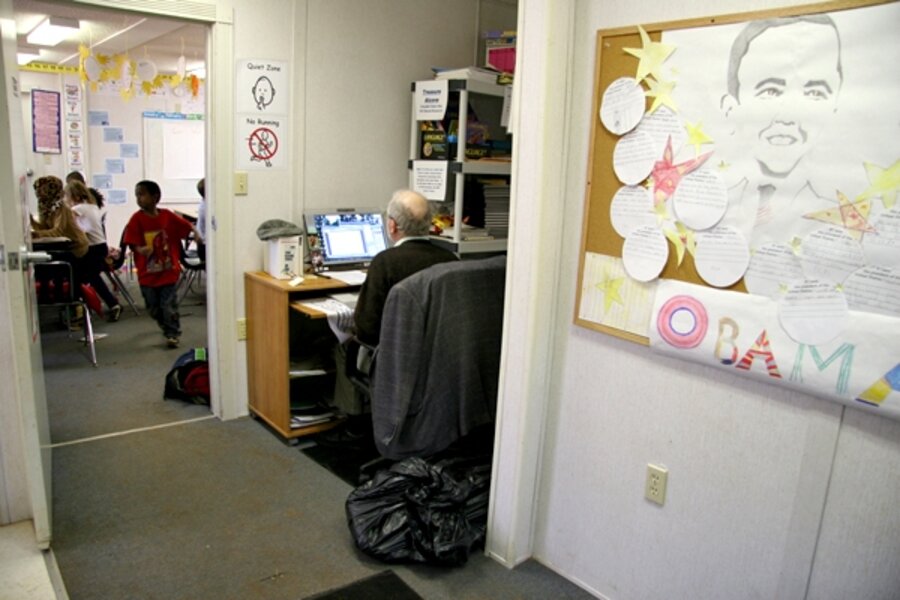A school’s church-state dilemma – shared space
Loading...
It's not easy running a public school in church-owned buildings, as we mention in our newest story.
It's also not easy being a church sharing space with a school like ICS, which runs enrichment programs for students and families after school and on Saturdays. Only one day a week can you really call your space your own.
But for members of Avondale Pattillo United Methodist Church in Decatur, Ga., it's worth it. When school founders approached the congregation in 2001, says Julia Morgan, the church's director of Christian education and its liaison with ICS, "We saw it as a mission."
Not in a proselytizing sense, she says: in a "love thy neighbor" sense.
Because Avondale Pattillo borders a sprawling, dangerous apartment complex called Southern Pines, where many refugee families land when they're first relocated to the US. Before the school opened, women in veils would walk over and sit on the church grounds, chatting as their kids gathered pecans in a peaceful grove out back. Members knew that these folks lacked a refuge.
"We had seen a need in the apartments," Ms. Morgan says. The aging congregation offered the school use of its buildings for extraordinarily little rent, and now holds annual school supply drives for the kids, and sponsors a welcome luncheon for staff at the start of each year. ICS founders say the school could never have opened without the church's support.
Still, it has been a challenge. To house a public school in a working church, members had to take down crosses and cover pictures of Jesus.
ICS rents the church's educational buildings, and has expanded into several trailers on church land. It doesn't rent the church's sanctuary, under the steeple and cross.
But that's the first thing prospective parents see as they approach the campus. Before the school opened, one leader of Atlanta's Somali community, who'd been extremely supportive of ICS's mission in the planning phases, made the difficult decision not to send his kids there because of that cross. Other parents, too, have been wary.
"And rightfully so," says pastor David Grady, "If I was not a Christian and I was dropping my child off at a public school and out front was a building with a cross on it, I'd be like: Are you sure?' "School founder Sister Patty Caraher sympathizes. "I think about if I had kids, and I was sending them to a public school in a mosque, how would I feel?" she says.
School staff made major outreach efforts to overcome these doubts, and to prove to prospective parents that they were a secular, public school community where people of all faiths - or no faith - were celebrated equally. The school's Somali and Muslim staff members worked particularly hard to build trust with many families. Today, Somali kids are the largest foreign-born group the school serves.
Still, it was a feat. If ICS had been allowed to rent one of the old county school facilities that's now standing empty, founders say, building that trust would have been easy.





